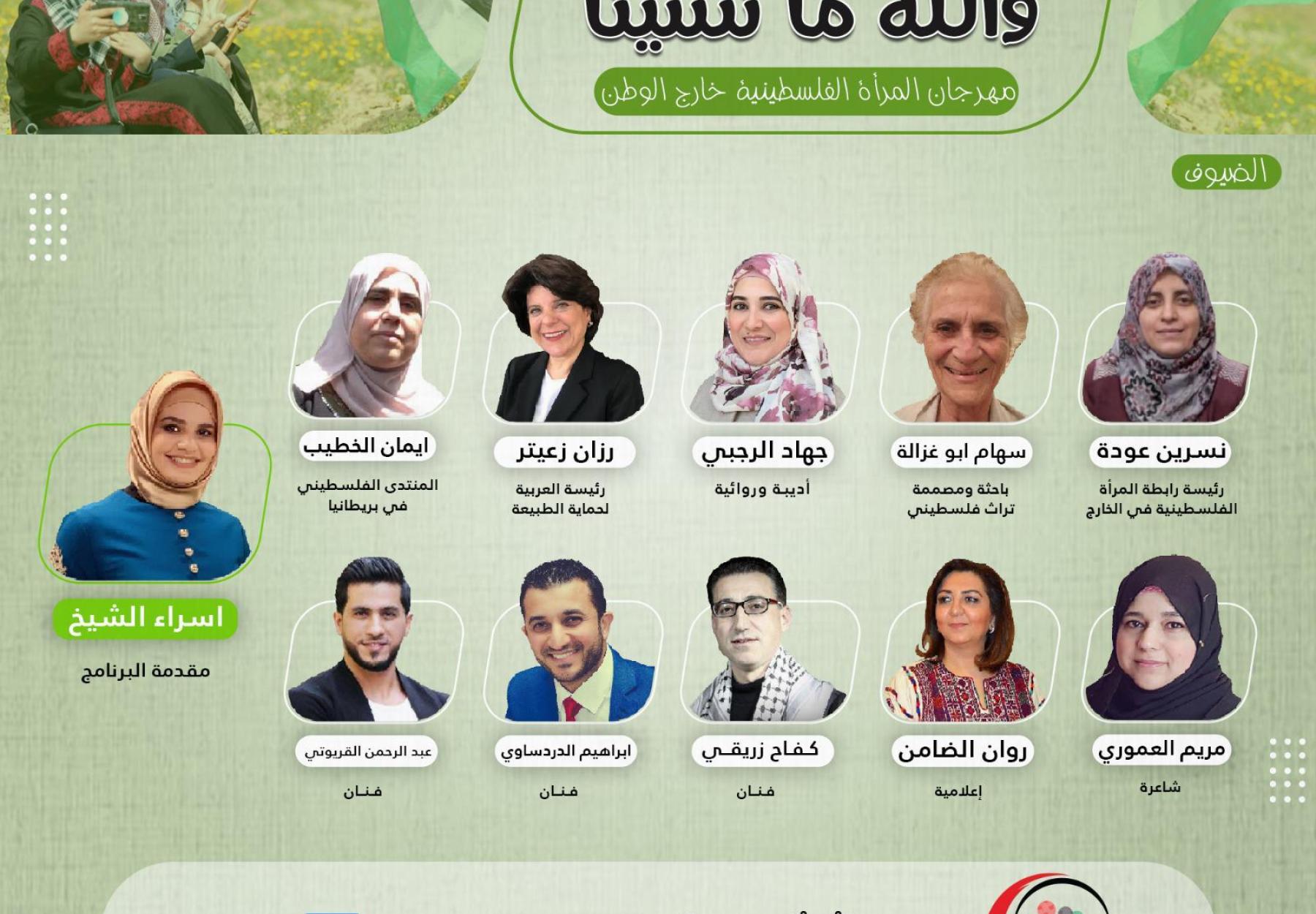
On March 27, Razan Zuayter, President of The Arab Group for the Protection of Nature, participated as a speaker at the "Palestinian Woman Abroad" festival at the invitation of the Palestinian Forum in Britain, on the occasion of the 45th anniversary of Land Day.
During her speech at the festival, at which Palestinian women active in various fields participated, Zuayter recounted the story of the origins of APN, which was launched in the aftermath of the second Palestinian uprising in 2000 and has accomplished significant achievements in terms of supporting Palestinian farmers and preserving lands from confiscation.
Explaining the launch of the "One Million Tree Campaign" in Palestine, Zuayter said, "We saw on television the tears of a Palestinian farmer crying over his 100-year-old uprooted olive trees, and after researching, we confirmed that the occupation uses food, water, and the systemic destruction of farmland and trees as weapons of domination over the Palestinians to push for their removal from their lands.
Zuayter said that APN's "One Million Tree" campaign has planted to date more than two and a half million trees, benefiting over 29,000 Palestinian farmers. This encourages farmers to hold fast their lands despite restrictions and attacks. She added that the Israeli government has allocated twenty million shekels (around USD7 million) to resist peaceful afforestation efforts.
Zuayter explained that APN's efforts over the past twenty years have not been limited to fieldwork and rehabilitation, but also have shaped discussions at international forums, adding, "conflict, war, and occupation were placed as policy priorities at a time when a word like occupation was taboo." Zuayter said, "It has not been not easy, as colonialism dominates these platforms and takes advantage of the absence of our countries and civil organizations."
At the end of her speech, Zuayter stressed the need for unity and joint work against attempts to liquidate the Palestinian issue and against the normalization agreements. She noted that the Oslo agreement put 60% of the West Bank under the security and civil control of the colonizers, where Palestinian agriculture is now illegal. Confronting this is not impossible, she said, if a collective decision is made to confront all psychological attacks and cooperate to provide moral and material support for sustainable development in Palestine, as an alternative to international donor financing (given that such donors often refuse to support Area C, and even seek dependence and compliance through their conditions).